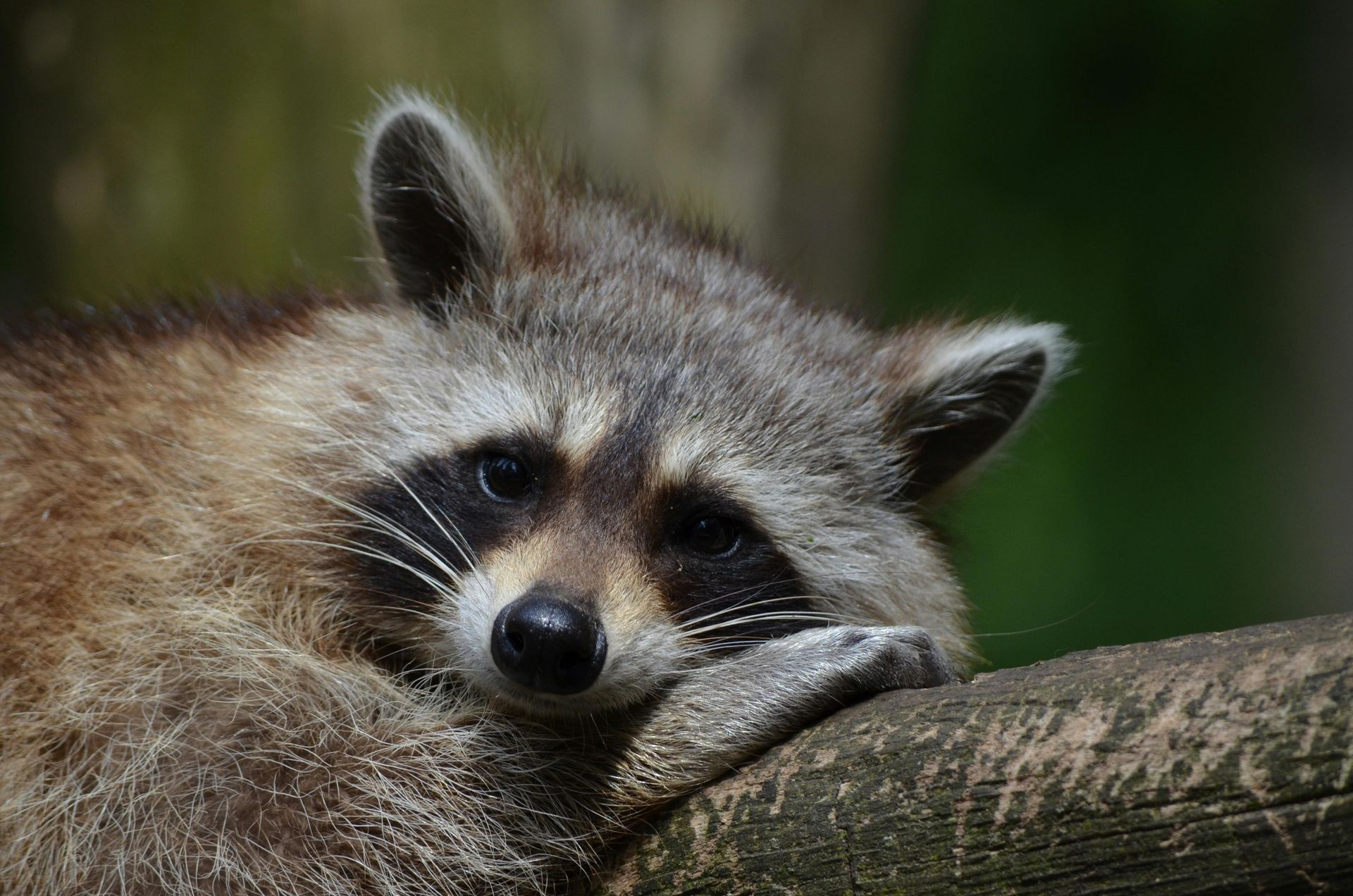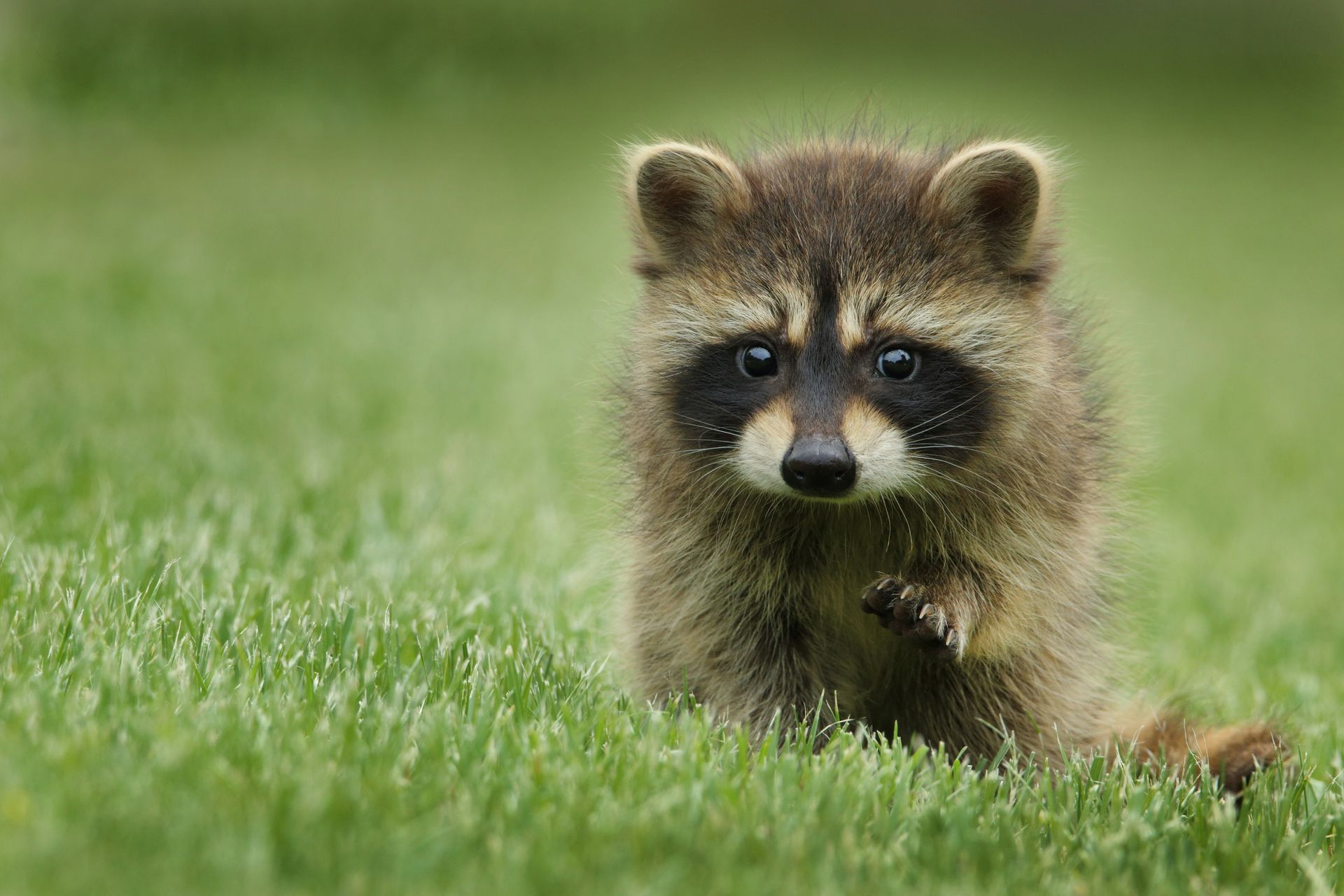Raccoons are intelligent and highly adaptable mammals known for their distinctive black "mask" and ringed tails. These nocturnal foragers are native to North America but have expanded their range due to their remarkable ability to thrive in diverse environments, from dense forests to urban landscapes.
Typically weighing between 10-20 pounds and measuring up to three feet in length (including their tails), raccoons have dexterous front paws that allow them to manipulate objects, open containers, and even solve complex problems. Their dense fur varies in shades of gray and brown, providing excellent camouflage in natural settings.
Omnivorous by nature, raccoons consume a varied diet, including fruits, nuts, insects, small vertebrates, and human food scraps. They are notorious for rummaging through trash bins in urban areas, displaying both resourcefulness and adaptability.
Raccoons are solitary except during mating season, which typically occurs in late winter to early spring. After a gestation period of about 63 days, females give birth to litters of 2-5 kits, raising them in tree hollows, abandoned burrows, or attics in urban settings. Young raccoons stay with their mothers for several months, learning essential survival skills before becoming independent.
Natural predators include coyotes, bobcats, and large owls, though human-related dangers, such as vehicle collisions and habitat destruction, pose greater threats. Raccoons are found throughout North America and have been introduced to parts of Europe and Asia, where they have established growing populations.

Do Not Touch: Raccoons can carry rabies and transmit it to people and pets. Raccoon feces can carry a roundworm that can cause severe infections in humans.
Found An Animal? Not sure how to help a wild animal in need? Learn when to step in, who to call, and how to help safely.
Did You Know?
- Raccoons have incredibly sensitive front paws with almost as many nerve endings as human hands, allowing them to feel textures and even determine the freshness of food underwater.
- They are known for their "washing" behavior—dipping food in water—which is believed to enhance tactile sensations rather than actually cleaning the food.
- Despite their stocky build, raccoons are excellent climbers and can scale walls, fences, and trees with ease.
- Their nocturnal nature is an adaptation for avoiding daytime predators and human activity.
- Raccoons have a complex vocal range, using over 200 different sounds to communicate with each other.
- They can remember solutions to puzzles for years, showcasing their problem-solving intelligence.
- Unlike common belief, not all raccoons carry rabies—although they can be carriers, most raccoons are healthy and pose little risk if left undisturbed.
- Their highly adaptable nature has allowed them to thrive in cities, where they have learned to navigate human infrastructure with remarkable skill.
- In some cultures, raccoons symbolize curiosity and adaptability, traits that align with their real-world behavior.
Problems Faced In The Wild
- Habitat Loss: Urbanization and deforestation reduce raccoon nesting sites and food availability.
- Vehicle Collisions: Roads and highways pose a significant threat, especially in suburban and rural areas.
- Poisoning: Rodenticides and pesticides can poison raccoons indirectly when they consume affected prey.
- Conflict with Humans: Raccoons often face extermination when they enter attics or rummage through trash bins.
- Disease Spread: Although not all raccoons carry rabies, disease transmission among raccoons and to other wildlife is a concern.
- Pollution: Human waste, plastic, and chemical contaminants can harm raccoons when ingested or encountered in their environment.
Tips For Cohabitation
- Secure Trash Bins: Use wildlife-proof lids to prevent raccoons from scavenging in garbage.
- Seal Entry Points: Prevent raccoons from nesting in attics or crawl spaces by sealing potential access points.
- Avoid Feeding: Feeding raccoons may encourage dependency on human food and increase conflicts.
- Use Motion-Activated Deterrents: Lights or sprinklers can discourage raccoons from foraging near homes.
- Limit Pet Food Outside: Leaving pet food outdoors can attract raccoons and other wildlife.
- Drive Carefully at Night: Be aware of raccoons crossing roads, especially in wooded or suburban areas.
- Provide Natural Habitats: Allow trees and natural spaces in yards to support a balanced ecosystem rather than driving raccoons toward urban scavenging.



